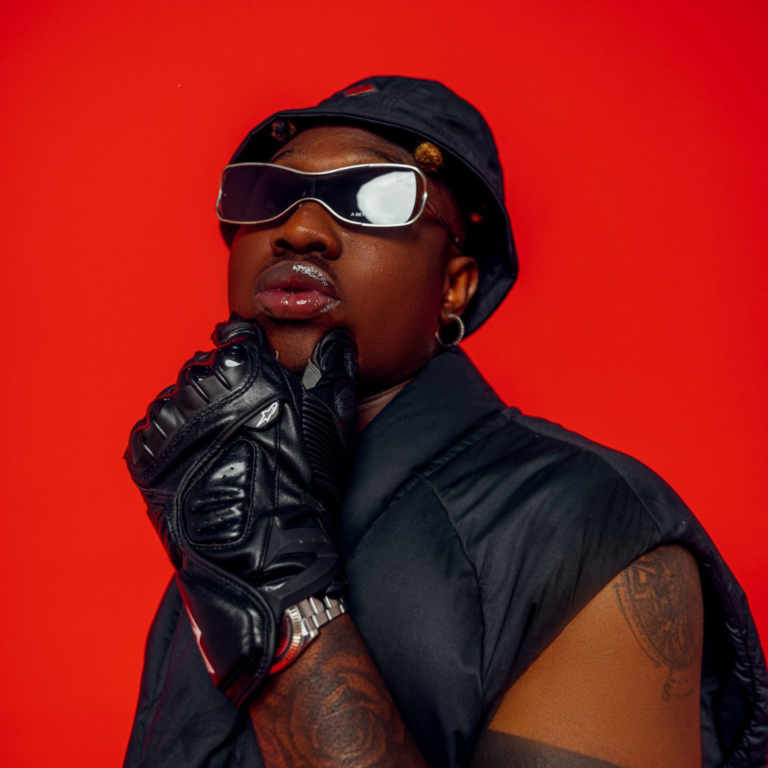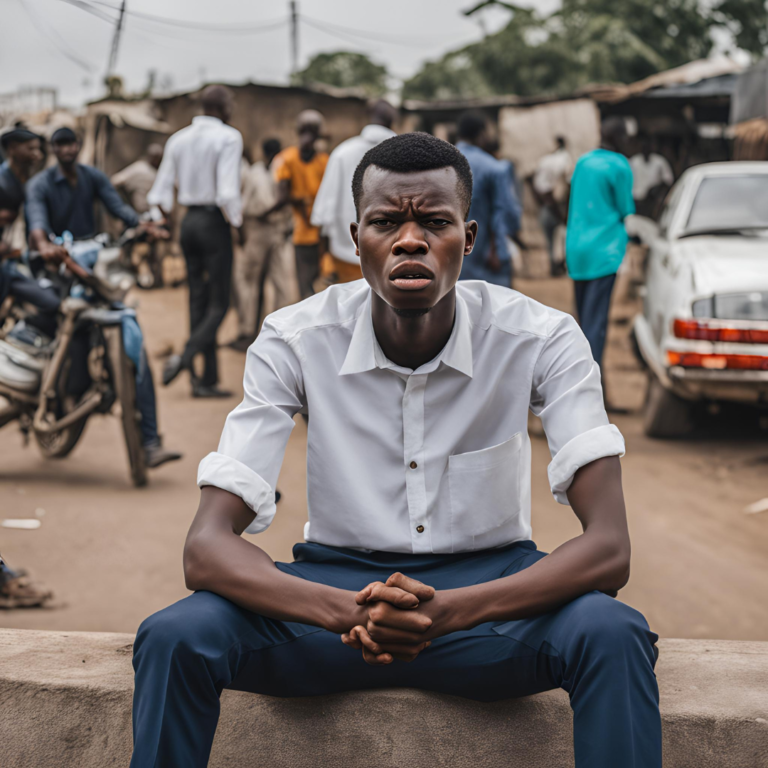If you asked teenage me who Reminisce was, he’d recite: “How far, how far? 1827765. Report your location. Sarz on the beat, AKA Knackdemus. O ja?!” — Reminisce, Kako bi Chicken (2012).
I got into the veteran rapper’s music in 2013, and he’s never let me run out of cool slang to recite with my friends. First, it was Hurricane, a song he dropped as a warm-up to his sophomore album, Alaga Ibile. Beyond the unmatched thrill of bursting out “bai” at the end of each bar, Hurricane introduced me to my current favourite rapper, PayBac iBoro, who Reminisce met at music producer, Sossick’s studio and gave a chance to take the second verse.
A decade later, Alaye To Se Gogo (ATSG), Reminisce’s latest body of work, shows remarkable evolution — his testimony as a street conqueror. With this album, he’s pushed through the ranks and sits in the upper echelon of the game. I sat down with the 42-year-old rapper and had him share the inspiration behind Alaye To Se Gogo, its significance and what he’s learned in his 20-year career.
What inspired Alaye Toh Se Gogo Volume 1?
Reminisce: The will to make music for people who still want to listen to me.
Before I returned to the studio, I asked my team if people genuinely wanted my new album; making music is expensive. I wasn’t sure I cared about making an album, but they convinced me that the request was high and we put it out. Since then, I’ve been extremely surprised. A lot of folks are listening to the album and talking about it. I actually have a huge, loyal following.
People still like me this much? It’s great. I appreciate it. This album came from a place of love and passion.
What was the creation process like?
Reminisce: I like to sit in my home studio, listen to music and do my thing. I prefer to write to the beat. It’s easier because I don’t have to adjust anything after. It’s plug-and-play; I load the beat and write on my phone.
What’s a day in your life like?
Reminisce: I typically wake up around 12 p.m. or 1 p.m., brush my teeth and sneak in one or two smokes to start my day. I go through my emails and digital numbers on Spotify, Apple Music, YouTube, etc. I check my socials to see who’s banting who — I love Twitter so much.
If I have work to do, I get to it. If travelling is involved, I’m up in the morning and on my journey. Whether by road or plane, I try to make it early and get to wherever I’m going by 4 p.m. at most. On days I have music to make, I get in my home booth and record. Or play my video games, if I’m less busy.
Around mid-afternoon, my daughters are back from school, so I spend an hour or two with them, go back to my studio to watch evening football matches, listen to music, watch podcasts, whatever. My day is basically about me, my work, my kids and my family.
Are you ever worried about ageism in the Nigerian hip-hop industry?
Reminisce: No. It’s almost as if people don’t want to see older artists who’ve donned stages and mics for years keep going. But everyone has their audience. People who grew up listening to my music and are still alive, so I have to serve them.
All the online reaction to Alaye Toh See Gogo has been from a certain demographic: people who’ve listened to my music since secondary school or uni and have grown up. They feel like they grew up with me and my music.
Who influenced your music growing up?
Reminisce: Snoop Dogg, Tha Dogg Pound crew and Dr. Dre were huge influences. But the overall impact was Michael Jackson. I can sing 20 Michael Jackson songs right now. My favourite is Billie Jean. MJ was my eldest brother’s age-mate, and they shared the same birthday. So, my admiration is also a bit personal. I was sad when he passed away.
MJ was the first celebrity I recognised before falling in love with hip-hop. Then in secondary school, there was the Snoop Dogg and Juice and Gin period, and there was Biggie and 2Pac. I used to mime all their lyrics. Nas and Jay-Z came into the picture, and their music finished work on me. I preferred Nas; I respect money-making talk and all, but I’m for lyricism.
But everything you’ve heard in my music so far is about my own life. I lived with my mum growing up. After she passed, I shuffled between my step-mum and grandmother. This was a bit of an eye-opener for me: understanding different people, perspectives and polygamy.
I grew up in a liberal Islamic home. We performed duties and rites as Muslims, but my dad never pressed us to be religious. When success came, and my life changed, I started trying to be a proper Muslim. I make more time for my children and my relationship with my creator. I don’t want my kids to see me as a pagan. I want them to identify me as Muslim. I’m still liberal, but I practise Islam as a way of life beyond prayers and fasting.
What’s one thing you still aspire towards?
Reminisce: Nothing. All I’ll ask for is a long life. Anything material or career-related? No. I don’t make demands on myself because I understand what will be will be. I only need the will to do things I want to do. Suppose I want to put out an album. I’ll ensure the standard is good enough for anything that wants to happen from there. Anything besides that is pressure, and I’m done with that.
I once saw a photo of you with your head buried in a book, and my takeaway was you’re a book lover. Am I right?
Reminisce: Yes.
My favourite book is Sir Alex Ferguson’s “Just Champion!” Growing up, we watched Manchester United all the time. Sir Alex was Michael Jackson standard to me — untouchable. His first book came, and I had access to his life story, dressing room issues and many backstories. The book touched me. I read it five times. It was emotional, and it’s still on my shelf.
It could’ve been football over music?
Reminisce: I no too sabi like that. I played for my secondary school twice. The two times, they fired me. I have friends who forced themselves to play but didn’t make it. I knew football wouldn’t work for me; I was honest with myself. But rap? There was no doubt it was my thing.
How did you know you were a good enough rapper?
Reminisce: As a teenager, I was doing it for fun, but people listened and showed support every time. When I asked my sister if I was excellent, she’d acknowledge me and boost my confidence. So I was sure about it. But for football, I was like Wan-Bissaka or Harry Maguire — average. If you put me inside a team, nothing would show. Football fans would liken me to Kalvin Phillips — nothing exceptional on the pitch.
What was your early experience as a rapper?
Reminisce: I had the worst experience with rejection.
In the early days, I was the radio station DJs’ joke material. They used to call me “The King of Promo CDs” because I printed a lot of them. I used to print a thousand copies of three to four singles a year. Everybody knew me; everybody had my CDs. But I’d go to radio and TV stations, and I’d see them in the dustbin because people didn’t care. I was that guy. But I’ve never let that weigh me down or make me look at people who didn’t help differently.
It’s part of my journey. Specific incidents happen to me so I can remember where I come from and where I’m headed. I don’t dwell too much on them, whether positive or negative. No matter how much good or bad happens to me, nothing stops my movement. That’s why when people say I’m a good storyteller, I refute it. I have many stories to tell because I’ve been through a lot. I don’t have any regrets about my life and decisions.
This reflects in your stage name, Reminisce
Reminisce: Reminisce came up because of the first four letters of my name, Remilekun. I went with the flow because it sounded nice. I actually wanted to use MC Khalid, but no one used Muslim names back then, except maybe Rakim, and he was older.
Each of your projects seems curated to take listeners through the significant phases of your life. Is that intentional?
Reminisce: I’m intentional about my art and its perception. I have to grow, and I want anyone who listens from the start to grow with me. As the listener evolves with Reminisce, the music must level up. If you listen to Alaye Toh Se Gogo and you heard shit I already said on Alaga Ibile, there’s a disconnect.
My albums are portraits. See it as a young guy who once didn’t have a beard growing a goatee. Soon, the beard will connect, and you’ll see that “Alaga is getting older.”
I don’t want to force anything. I evolve, and so do the people I serve my music. I carry them along and make it fun.
What’s the hardest lesson you’ve learnt so far?
Reminisce: Zero expectations.
People will always be people. Know this, and you won’t be disappointed. My dad told me I shouldn’t pressure myself. I have to make it, but I also have to ask myself what I want. He told me to have it at the back of my head that the fruit of any decision I make will affect my family. Whether for good or bad, I have the option to choose.
What does success mean to you?
Reminisce: Success is relative in the Ibile Movement. It’s why Olamide’s Grammy nomination means the shit to us. We can’t compare ourselves to new kids who have the springboard or backing, doing genres way more popular than we do. People’s journeys and stories are different. To me, whatever makes anyone feel like they’re made or fulfilled is a success. Some people will never win a Grammy. Some people have been nominated for the award but will never win. Whether a Grammy is your metric for success or not, it’s all about perspective.
You just have to figure out what audience you want to reach because there’ll only be a few global talents every year. You need to focus on your audience, serve them what they want and milk it. Everyone can’t be Drake; he’s a rare phenomenon. Stick to your thing. There’s money to make everywhere.
As a rapper in Nigeria, understand that you represent a disadvantaged genre right now. Even the numbers and metrics overseas are saying the same thing. You must be extremely smart about your music and business.




